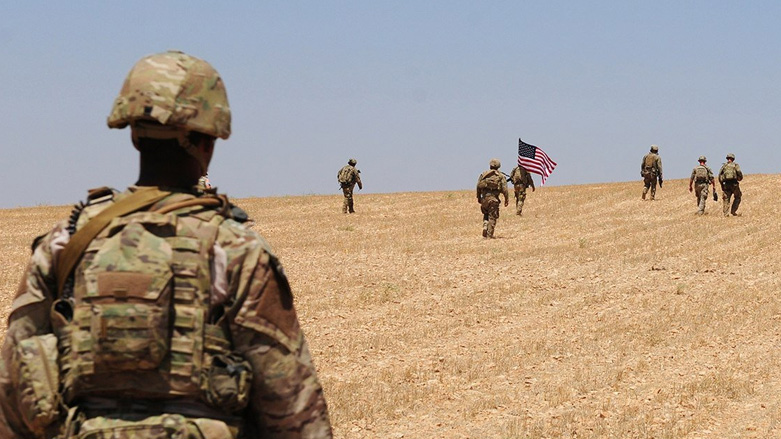John Bolton: 'Very optimistic' Britain and France will join Syria Observer Force

WASHINGTON DC (Kurdistan 24) – White House National Security Adviser Amb. John Bolton on Sunday said that he expected Britain and France would join with the US in creating an observer force for eastern Syria after the US withdraws the bulk of its troops from that area.
Bolton also reaffirmed the US intent to keep forces in Iraq.
“In conversations this past week with my British and French counterparts, I’m very optimistic that they’re going to participate,” Bolton said on ABC News’ Sunday morning talk show, “This Week.”
Bolton was answering the question, “Have you gotten any firm commitments from allies to help out?” His reply revealed that gaining allied support for the observer force in Syria had been on his agenda for the past week.
Similarly, the Pentagon has been working on the issue. “General [Joseph] Dunford, chairman of the Joint Chiefs of Staff, has worked extensively on this,” Bolton added. “He’s had considerable success.”
“It hasn’t happened formally yet, but they’re looking at it,” Bolton said. “I think it’s very important that we try and get this up.”
It was still too early to make a definitive statement, and Bolton was cautious, saying, “it may or may not succeed,” as he concluded, “we’re still pursuing this.”
Nonetheless, it is unlikely that Bolton would have spoken as he did were there not good reasons to expect that France and Britain would agree.
Bolton also affirmed that the Islamic State, while defeated as a “territorial caliphate,” is still a threat, “one reason that the president remains committed to keeping an American presence in Iraq and a small part of an observer force in Syria.”
Washington’s plans, however, may face obstacles in the region. In Iraq, political pressure among Shia factions in the parliament is building to force the ouster of the US-led coalition, although the result of any such effort remains far from certain.
In Syria, the US position stands in virtually complete opposition to the Turkish position. Turkey wants to control any safe zone itself.
On Wednesday, Turkish President Recep Tayyip Erdogan told a Turkish broadcaster that the Syrian safe zone must be controlled by Turkey.
“Let me tell you what they [the US] will do. They will give control of this area to the YPG (the People’s Protection Units) and the PYD (Democratic Union Party),” the political arm of the YPG, Erdogan said.
Neither Washington nor Ankara has explained how they expect to reconcile these diametrically opposed positions. Turkey will hold local elections at the end of the month. Almost certainly, the vote is a factor in Erdogan’s tough position.
Indeed, Erdogan, at least for now, seems to be showing little concern for his country’s relations with the US. In the same interview, he affirmed that Ankara would proceed with the purchase of the Russian air defense system, the S-400, despite warnings from the State Department and Pentagon that doing so would jeopardize Turkey’s role in the production and acquisition of the F-35, America’s newest fighter plane, as well as subject Turkey to potential US sanctions.
As Washington Post columnist David Ignatius wrote, Erdogan had responded to the US cautions “in effect, by flipping the bird.”
Ignatius cited Eric Edelman, US ambassador to Turkey from 2003 to 2005, who called Turkey “a totally unreliable ally.” In January 2004, while ambassador in Ankara, Edelman, in a cable released by Wikileaks, described the Turkish leader in devastating terms: “Erdogan has traits which render him seriously vulnerable to miscalculating the political dynamic, especially in foreign affairs.”
Editing by Nadia Riva
